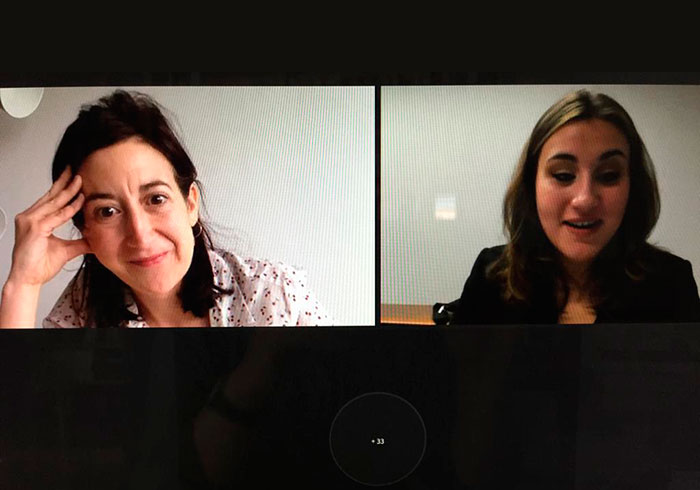
This doctoral thesis, supervised by Amparo Latorre Castillo and Carlos García Ferris, analyses the metabolic interaction between the partners of the symbiotic system of the German cockroach Blattella germanica, formed by the endosymbiont Blattabacterium, the gut microbiota and the host itself. Part of the results of the thesis have been published in the journals NAR Genomics and Bioinformatics and Journal of Pharmaceutical and Biomedical Analysis. The thesis was defended on 25 March 2021.
The main objective of the thesis "Understanding the dialog between the gut microbiota and the endosymbiont in the model system Blattella germanica" has been to understand why cockroaches have two symbionts (Blattabacterium and the gut microbiota), and if there is a dialog between them and the host. First the molecular communication between the endosymbiont and the host, as well as the interaction between the endosymbiont and the gut microbiota, were examined. The analysis and integration of various omics techniques allowed the study of the functions of the microbiota. To describe the molecular mechanisms that allow the transport of metabolites between the cockroach and its endosymbiont, potential membrane transporters were cloned in yeast, and their function analysed. The effect on the rest of the system of reducing the endosymbiont population by antibiotic treatment with rifampicin was also studied. It was found that the endosymbiont has an essential role in host development that cannot be supplied by the gut microbiota, although it can survive with its highly reduced population. However, it was shown for the first time that the gut microbiota is able to self-regulate and is not modified by these changes. These results, given that B. germanica is an important pest, open the door to studies with cockroaches lacking an endosymbiont (aposymbiotic). Finally, the gut microbiota was analysed with three omics techniques and a bioinformatics software was developed in collaboration with the Robert Koch Institute (Berlin) to allow automated analysis and integration. This software, called gNOMO, also allows parallel analysis of host data, which is of great interest for the study of the microbiota of non-model organisms.
Maria Muñoz Benavent's thesis has been carried out in the Evolutionary Genetics laboratory at I2SysBio under the supervision of Amparo Latorre Castillo (Full Professor of Genetics at the Universitat de València, UV) and Carlos García Ferris (Associate Professor of Biochemistry and Molecular Biology, UV). During the development of this thesis Maria Muñoz Benavent was the beneficiary of a contract from the MICIU FPU Programme, and carried out a research stay at the Robert Koch Institute in Berlin with a grant from the UV. The examining board was formed by Francisco J. Silva Moreno (UV), Laura Gómez Valero (Institut Pasteur, Paris) and Rafel Patiño Navarrete (Sorbonne Université, Paris), who graded the thesis as outstanding.











